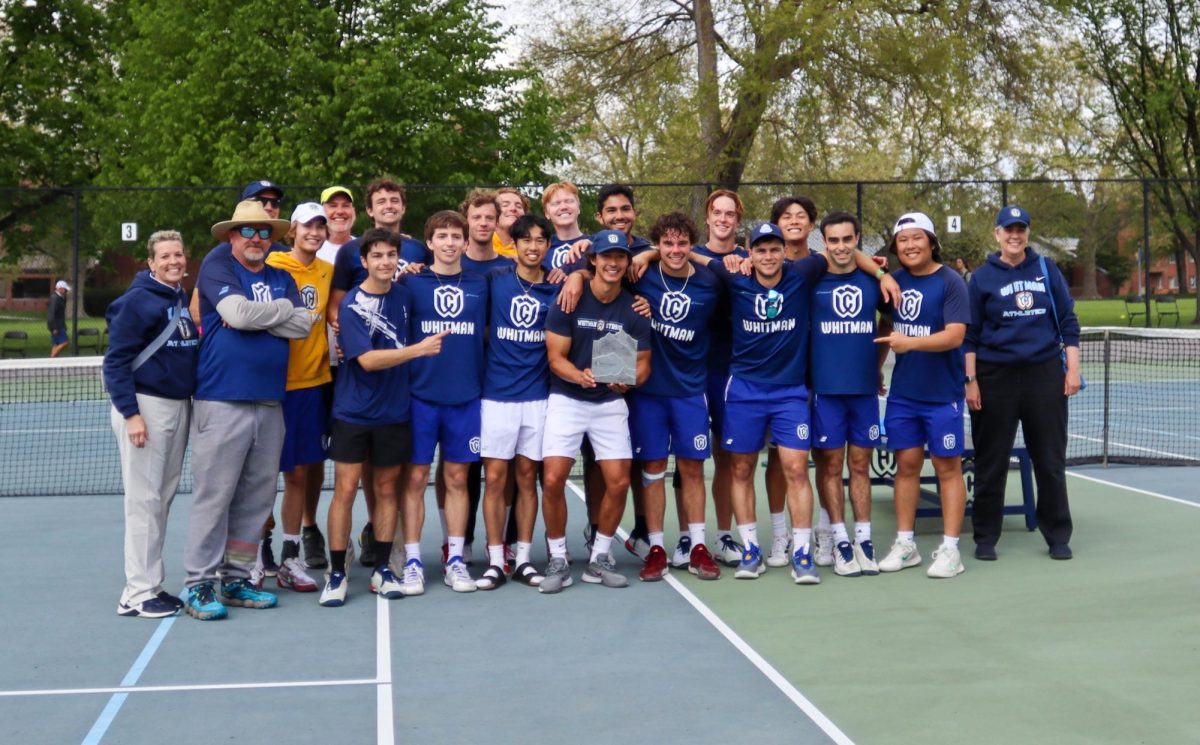Injuries are not enjoyable for any athlete. Yet, as an athlete who suffered an ACL tear during my collegiate career, the athletic training room became my second home due to the many hours of knee rehabilitation. In the process I had the pleasure of getting to know the men who make it their mission to solve every ache and pain of athletes at Whitman College, John Eckel and Nathan Fry.
From working with skeleton teams, to open fractures and dislocations of several fingers, the infinite cringe-worthy stories these men carry with them are mesmerizing. You could sit with them for hours and never get bored.
Eckel and Fry, who came to Whitman in 2010 and 2009 respectively, discovered their passion for athletic training in college. For Eckel, being a football coach was his original plan until he took an athletic training class.
“I liked it. I liked the idea of helping people,” said Eckel.
Fry chose athletic training as a career due to the many injuries he suffered as a collegiate volleyball player. From broken ankles to a torn ACL, Fry had to deal with an astonishing array of injuries.
“I was hurt more than any Whitman athlete combined. I was always in the training room,” said Fry.
By stepping into the training room, you get transported into a whole different world. You see hot and cold tubs on the right and drawers and drawers of different Band-Aids and other gadgets on the left. Just by observing Eckel and Fry for a good minute, you will realize that they are masters of their craft.
According to Eckel and Fry, the most exciting part of their jobs is that there is no typical day.
“That’s why we do the job,” said Fry.
Every single day different athletes come in and out of the training room looking for a solution to their injuries. Eckel and Fry always have an answer for their ailments.
“[Eckel and Fry] are seriously like superheroes. I can point to a random part of my body that hurts and they instantly know what’s wrong,” said Alyssa Maine, a sophomore golfer.
Hailey Maeda, a junior women’s basketball player who underwent shoulder surgery last year to repair a torn labrum, completely agrees that Eckel and Fry perform miracles.
“[Eckel and Fry] are really concerned about getting you better both mentally and physically,” said Maeda. “They really helped in my recovery and rehab process. Six months later, I am back on the court and feel great.”
Though their official titles are athletic trainers, they are much more than that. Fry and Eckel can often be found offering a listening ear when students are having a bad day or acting as comedians when athletes need a joke or two. Fry sees himself as a tough older brother, while Eckel takes the image of a fatherly figure.
“I try to make the experience fun, but not too fun so athletes won’t want to live in here,” said Fry of his demeanor in the training room.
Eckel expresses nothing but care and concern in helping athletes get back to peak condition.
“Obviously you have to have those qualities to be an athletic trainer,” said Eckel.
But at the end of the day, for these two men, it is all about improving the athletic experiences and lives of Whitman athletes.
“What I enjoy most about Whitman is the personal relationships you build with athletes,” said Fry. Eckel agrees, feeling that these relationships make it that much more meaningful when treating the athletes. “I love helping injured athletes get back to activity.”
Day after day, these athletic trainers excel in their jobs in order for athletes to get the best care they deserve. From dealing with traumatic seasoning-ending ACL injuries to waking up at the crack of dawn to prep athletes before early-morning practices, Eckel and Fry remain committed to athletes at Whitman.
And if the training room can be summed up in one word?
“Heart,” said Eckel. “The word has so many meanings that can be applied to the training room. Compassion, care, love, center, core, the most essential or important part.”
Heart is right.


